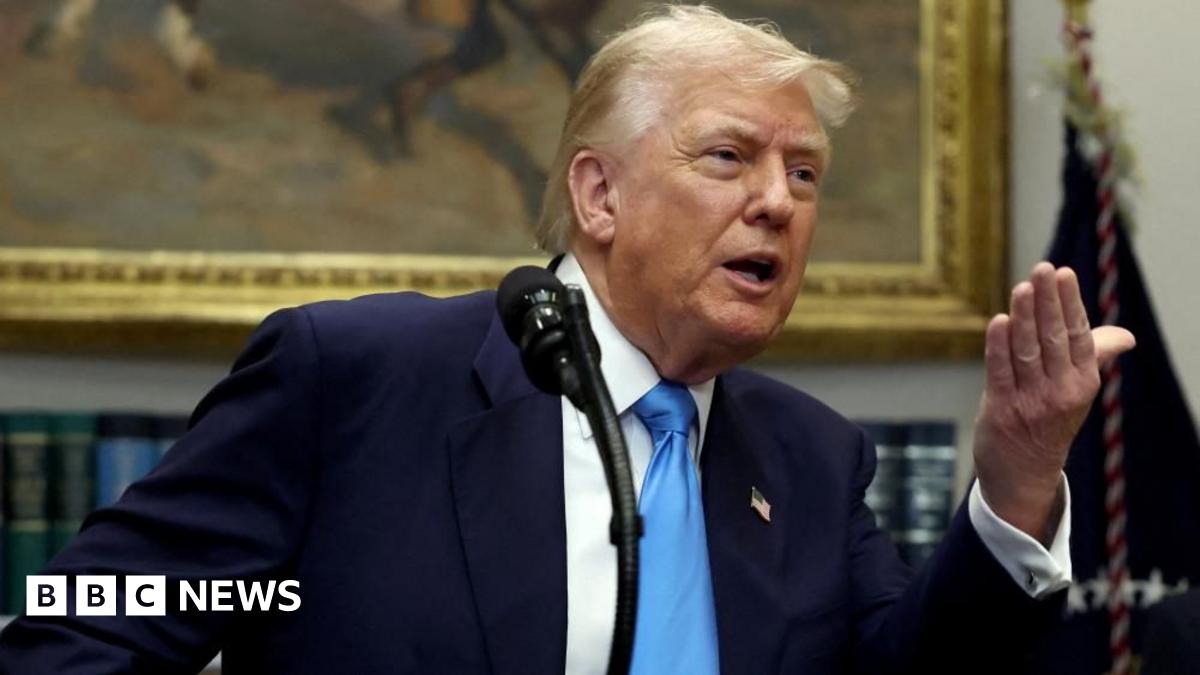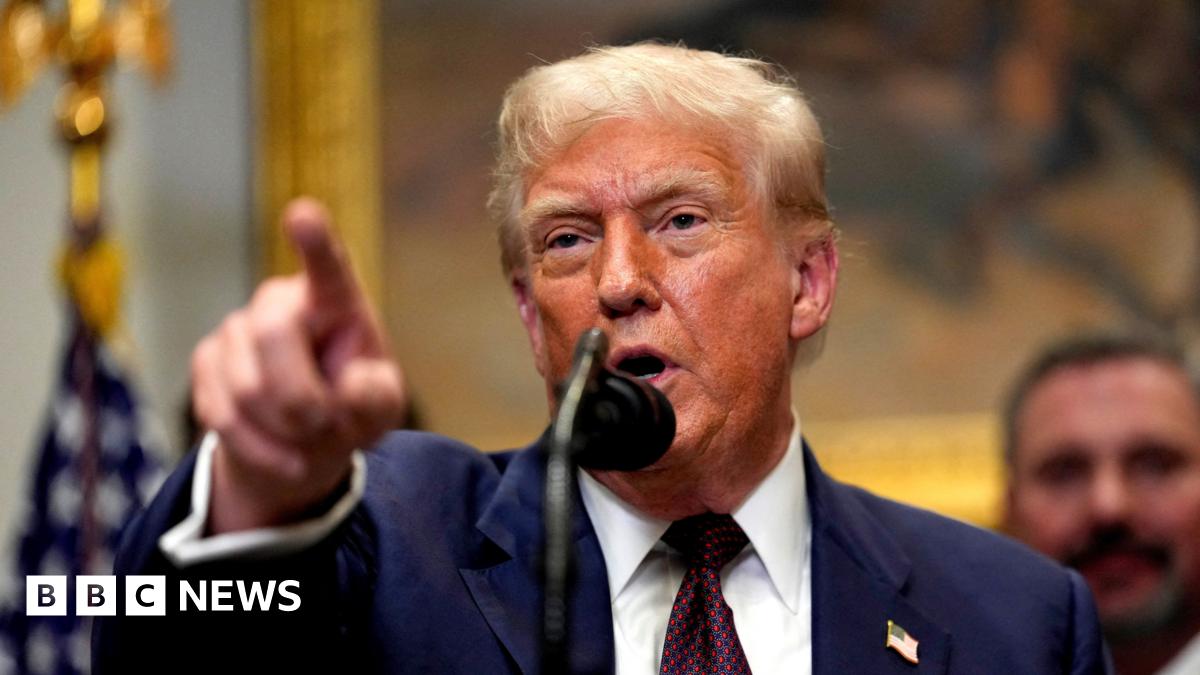What Happened
Today, the U.S. stock markets opened lower following President Donald Trump’s announcement of new tariffs affecting over 90 countries. This decision has raised concerns among investors and analysts regarding its potential impact on the U.S. economy, particularly in light of a recently released jobs report indicating a significant slowdown in job growth. The report revealed that U.S. employers added only 73,000 jobs in the last month, a sharp decline compared to previous months, which has raised alarms about the health of the labor market and the broader economy.
The tariffs, which include a 35% increase on many Canadian goods, have been framed by Trump as a necessary measure to address trade deficits. However, economic experts have pointed out that the U.S. trade deficit has actually widened, contradicting the administration’s narrative. The tariffs are expected to have a direct impact on consumer prices, with estimates suggesting that the average American household may incur an additional cost of approximately $2,400 this year due to these levies.
Key Details
- Stock Market Reaction: The Dow Jones Industrial Average and S&P 500 both fell by about 1%, while the Nasdaq dropped by 1.5% upon opening.
- Jobs Report: The latest report from the U.S. Department of Labor indicated that job creation slowed significantly, with only 73,000 jobs added in the last month. The unemployment rate ticked up to 4.2% from 4.1%.
- Tariff Details: The tariffs announced by Trump include a 35% rate on many Canadian goods, although most products are exempt due to the USMCA trade agreement. Other countries, including Brazil and Switzerland, are also facing significant tariff increases.
- Economic Impact: Economic analysts have warned that the tariffs could lead to increased costs for consumers and businesses, potentially stifling hiring and investment.
Multiple Perspectives
The announcement of the tariffs has elicited a range of responses. Supporters of the tariffs, including some members of the Trump administration, argue that they are necessary to protect American manufacturing and reduce the trade deficit. U.S. Trade Representative Jamieson Greer stated that tariffs are a “great deal for the country” and emphasized their role in trade policy.
Conversely, critics argue that these tariffs represent a tax on American consumers and businesses. Economists have noted that while the administration claims tariffs will bolster the economy, they may instead lead to higher prices for everyday goods. The Budget Lab at Yale estimates that the average American household will bear an additional burden of $2,400 this year due to the tariffs.
Furthermore, there is skepticism regarding the effectiveness of the tariffs in achieving their intended goals. The U.S. trade deficit has reportedly widened, and many economists believe that the tariffs may ultimately harm the very sectors they aim to protect. For instance, Stephen Miran, a former economic advisor, stated that there is “zero evidence” that tariffs are not leading to price increases for consumers.
Context & Background
The recent developments come against a backdrop of ongoing trade tensions between the U.S. and multiple countries. Trump’s administration has long maintained that trade deficits indicate unfair trading practices by other nations. The tariffs are part of a broader strategy to renegotiate trade agreements and pressure other countries to lower their trade barriers against U.S. goods.
Historically, the U.S. has seen fluctuating tariff rates, with the current levels being the highest since the 1930s. The implications of these tariffs are significant, as they could affect not only consumer prices but also the overall economic landscape, including job growth and investment.
The job market’s current state is particularly concerning, as the slowdown in hiring could be linked to the uncertainty created by the tariffs. Companies may be hesitant to expand their workforce or invest in new projects due to fears of increased costs and reduced consumer spending.
What We Don’t Know Yet
While the immediate effects of the tariffs and the jobs report are becoming clearer, several uncertainties remain. It is still unclear how long the tariffs will remain in place and whether they will be adjusted based on economic conditions. Additionally, the full impact of the tariffs on consumer prices and the job market may take time to materialize, as businesses adjust to the new economic landscape.
Moreover, the potential for retaliatory measures from other countries could further complicate the situation. Countries affected by the tariffs may respond with their own trade barriers, which could exacerbate the economic challenges facing U.S. businesses and consumers.
In summary, the interplay between the newly imposed tariffs and the recent jobs report underscores a complex economic environment, where the implications of trade policy decisions are still unfolding. As the situation develops, continued monitoring of both the labor market and international trade relations will be essential to understanding the broader economic impact.





